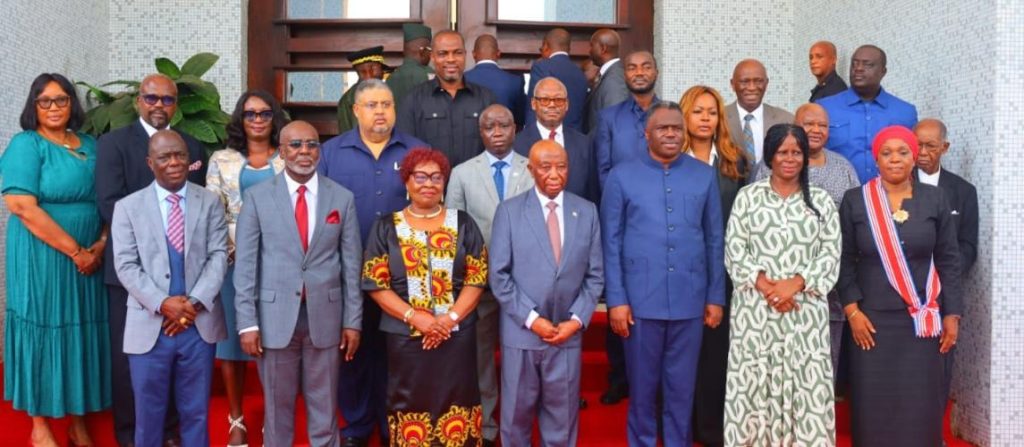On October 30, 2024, President Joseph Nyuma Boakai solidified his commitment to enhancing public sector accountability in Liberia with the signing of a presidential directive focused on the new National Performance Management and Compliance System (PMCS). This initiative aims to bridge the existing gaps in government responsiveness and efficiency, addressing the urgent need for a more accountable public service framework. According to an official press release by the Executive Mansion dated October 28, 2024, this system is hailed as a landmark stride towards fostering transparency and improving the delivery of public services. The PMCS is touted as instrumental in aligning the objectives of public institutions with Liberia’s national development agenda, thus paving the way for a more result-driven government.
President Boakai emphasized the transformational aspect of the PMCS, advocating for a public sector that prioritizes accountability, responsiveness, and a citizen-focused approach in governance. By adopting the PMCS, he envisions a significant shift towards a more structured and results-oriented public service environment. The directive outlines a clear vision: government institutions must enter performance contracts with the Office of the President, which will delineate specific objectives, tangible targets, and deliverables that are directly aligned with national priorities. This move is a clear indication of the President’s deep commitment to good governance and sustainable development, reinforcing the importance of measuring success through defined performance indicators.
A significant feature of the PMCS is its integration into the planning processes of government institutions. This is not merely a documentation exercise; the directive mandates that the PMCS be inherently embedded in the operational frameworks of each public institution, ensuring that their activities are in harmony with their legal mandates and the broader development goals of Liberia. This structural embedding is expected to foster coherence and a unified approach to governance, thereby enhancing the overall efficiency of the public sector. This alignment is crucial for a government that seeks to be more effective in responding to the needs and aspirations of its populace.
The directive also underscores the importance of performance reviews. Regular evaluations are mandated to monitor progress and tackle challenges as they arise, ensuring timely adjustments to keep goals on track. A commitment to ongoing assessment indicates a future-oriented approach, where the government not only sets goals but actively engages in reviewing and refining its processes to achieve desired outcomes. Through these reviews, the government aims to create an environment of continuous improvement, fostering a culture where accountability is both a shared responsibility and a measure of success.
To facilitate the implementation of the PMCS, oversight will be managed by the Cabinet Secretariat led by Director-General Nathaniel T. Kwabo. This oversight structure is essential to provide the necessary guidance and support to all government institutions as they embark on this new performance management journey. The Cabinet Secretariat is tasked with issuing further instructions and ensuring that effective support mechanisms are in place, fostering a seamless rollout of the PMCS across the public sector. This organized approach signals a comprehensive understanding of the complexities involved in public administration and an earnest commitment to ensuring that the new system is adopted smoothly and effectively.
In conclusion, the implementation of the National Performance Management and Compliance System marks a pivotal moment in Liberia’s public service landscape. President Boakai’s directive serves as a clarion call for a new era characterized by integrity, service, and accountability. The PMCS is not simply a regulatory framework; it represents a profound shift towards a government that is not only responsive to the needs of its citizens but is also dedicated to achieving excellence in service delivery. As Liberia navigates through this transformative phase, the government is poised to set a new standard for public service, ensuring that the expectations of its citizens are met and surpassed, ultimately leading to a more prosperous future for all.


